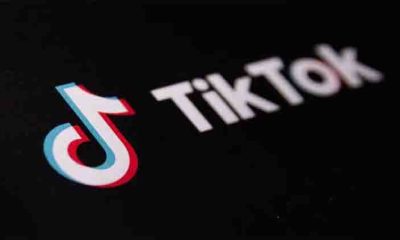As it marks its 25th anniversary Wednesday, the European Central Bank is readying a proposed design for a digital version of the euro, responding to pressure from developing technology that could change how money is used over the bank’s next decades.
ECB President Christine Lagarde says a digital euro could offer a way for people to buy things without depending on payment service providers controlled by non-European companies. Those could include Mastercard, Visa, Apple Pay and Google Pay.
The European Union’s executive Commission is expected to come up with proposed legislation on the idea in the next several weeks, ECB officials say, while the central bank will publish a detailed proposal for the design of a digital currency in October.
Central banks worldwide, including the U.S. Federal Reserve, are cautiously studying digital currencies as cash increasingly gives way to electronic payments. Some smaller economies such as Nigeria, the Bahamas and Jamaica already have introduced digital currencies, while China is holding trial runs.
Central banks also are responding to the emergence of cryptocurrencies, which have raised concerns that someday people could turn to rival forms of digital money that would undercut national currencies.
Digital currency backed by a central bank would be a safe and stable means of payment — unlike voltatile crypto, whose price crashes over the past year and collapses of exchanges like FTX have spurred calls for regulation. The EU became a global leader by giving final approval last week to rules for the freewheeling crypto sector.
As Europe considers its own central bank-based digital currency, the biggest question is: How would it improve on what’s already available for consumers?
“Nobody is able to answer this question, not even the ECB,” said Philipp Sandner, head of the Blockchain Center at the Frankfurt School of Finance & Management.
“As the user I ask myself, ‘What is the benefit, why do we need another solution?’” he said.
Apple Pay, for instance, allows people to buy their morning coffee — and anything else — by tapping twice on their phones, a seamless experience the digital euro would have to match.
“You have to be at least as good as Apple Pay and Mastercard, which is difficult, otherwise people will not use it,” he said.
The goal of a digital euro would be Europe’s autonomy and resilience when it comes to the largely unseen but critical systems that move money from consumers to merchants through banks and payment services providers, Lagarde said in a recent panel discussion.
She drew an analogy to Europe’s previous reliance on Russian oil and natural gas, which led to an energy crisis when the invasion of Ukraine disrupted that supply.
“It’s very unhealthy to rely on one single source of energy, it’s very unhealthy to rely on one single source of payment,” she said.
A digital euro also could help people who don’t have bank accounts, the thinking goes, because they could hold money on their phones.
The move toward increased digitalization comes as the ECB marks 25 years since its creation on June 1, 1998, seven months ahead of the introduction of the euro currency. An anniversary ceremony with German Chancellor Olaf Scholz and former ECB Presidents Mario Draghi and Jean-Claude Trichet is planned Wednesday at the bank’s Frankfurt headquarters.
The ECB envisions a digital euro for retail use that could even be transferred offline using a digital wallet on people’s phones. Early designs call for a standard app, along with use through existing online banking apps. It wouldn’t replace cash but add another way to hold euros.
Even after the proposal is made, there would be three years of testing. A decision to actually introduce the digital euro would only come after that and require EU approval.
Fabio Panetta, a member of the ECB’s executive board and head of the digital euro task force, says it wouldn’t replace cash and people would have the option, not the requirement, to use it.
“It would reduce dependence on a few dominant providers, increasing competition and resilience,” he told European lawmakers last month.
Europe’s banks have greeted the proposal with caution. They warn that without strict limits, digital euros could draw deposits out of commercial banks — depriving them of funding for things like business loans and mortgages.
Panetta has indicated holdings could be limited to the value of banknotes in circulation, around 3,000 to 4,000 euros per person.
The European Banking Federation supports payment autonomy but said a digital euro alone would not accomplish that without banks and payment services companies creating new and better ways to handle payments themselves.
“A retail digital euro, particularly if not able to offer a concrete value-added compared to existing electronic payments, is not an appropriate or sufficient tool to meet all the goals that have been put forward,” the group said.
Merchants, in theory, could push for greater adoption if they find taking payment in digital euros helps them avoid the fees charged by credit card companies, said Sandner of the Frankfurt School.
Post Views: 75


 Fashion3 months ago
Fashion3 months ago
 Fashion3 months ago
Fashion3 months ago
 Sports2 months ago
Sports2 months ago
 Sports2 months ago
Sports2 months ago
 Fashion2 months ago
Fashion2 months ago
 pakistan2 months ago
pakistan2 months ago
 World3 months ago
World3 months ago






















